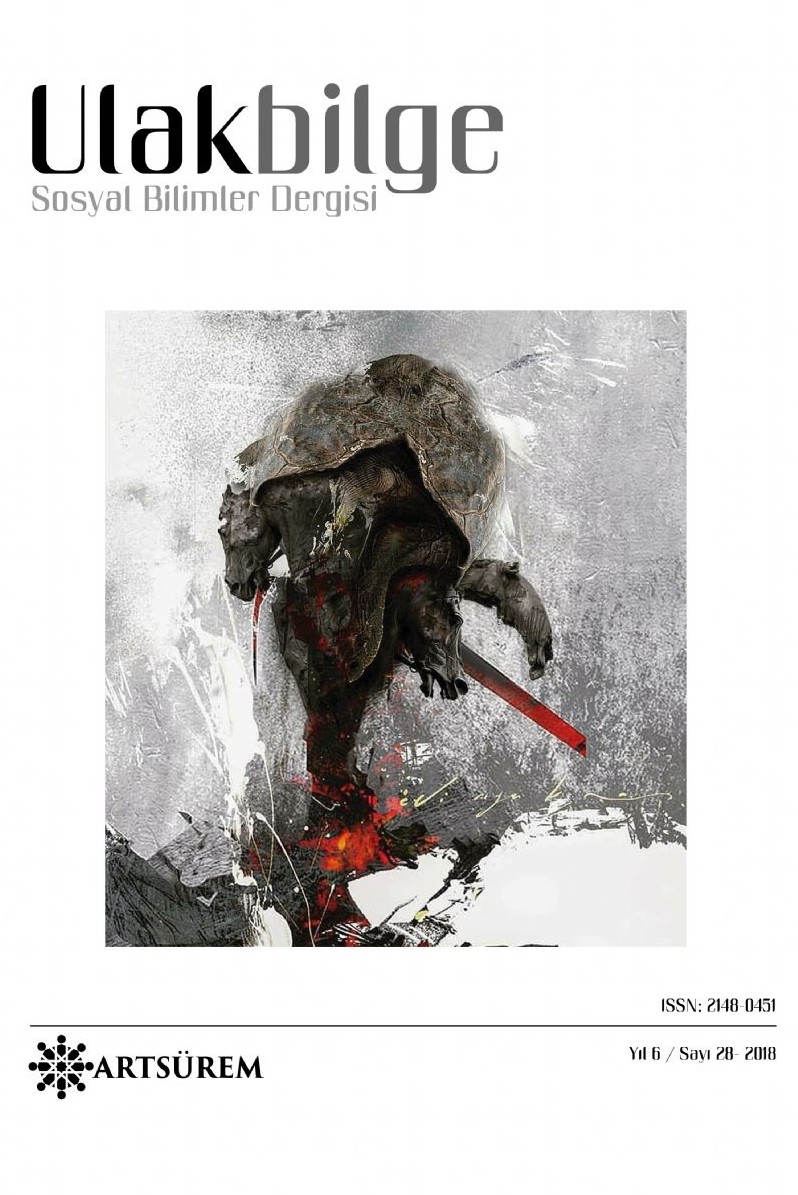SOCIOLINGUISTIC APPROACH TO TRANSLATION PROBLEMS: IN THE EXAMPLE OF DEDE KORKUT AND THE QURAN
Anahtar Kelimeler:
-
SOCIOLINGUISTIC APPROACH TO TRANSLATION PROBLEMS: IN THE EXAMPLE OF DEDE KORKUT AND THE QURAN
This article aims at learning how languages influence on culture and society as a result of translators' lack of familiarity with the culture of that language properly and developing a common method regarding how to translate old languages (Arabic, Persian and Turkic languages written in Perso-Arabic script) into English correctly specifically, by determining difficulties and problems occurred when translating old languages into English and give suggestions to solve such problems based on the three different copies of the old Turkic legendary book the book of Dede Korkut, which is well known among Turkic speaking countries and which was written in Perso-Arabic script in XI-XVI centuries AD (Mirabile, 1991: 6; Shikhbabayev, 2009: 13), and The Alcoran of Mohammed translated into English directly from the original Arabic by George Sale in 1861 (Sale, 1861). Keyword: Translation, Sociolinguistics, Dede Korkut, The Quran.
Keywords:
Translation, Sociolinguistics, Dede Korkut The Quran,
___
- Al-Hilali, Muhammad. Muhsin Khan, Muhammad. (1998) 'The Noble Quran English
- Translation of the meanings and Commentary'. Madinah. King Fahd Complex Arabic Calligraphy. (2012). Artwork by Mokhtar El Baba and Kamel El Baba Classic Arabic
- Script Types. Retrieved from http://www.arabiccalligraphy.com/classic-types Cəәmşidov, Şamil. (1999). Kitabi-Dəәdəәm Qorqud. Bakı, Elm
- Darul'Masnavi of the Mevlevi Order. (2012). A Reply to Misunderstandings about Rumi and Shams by Ibrahim Gamard. Retrieved from http://www.dar-al-masnavi.org/rumi-shams.html
- Dəәmirçizadəә, ƏӘbdüləәzəәl. (1959). Kitabi-Dəәdəә Qorqud dastanının dili. Pedaqoji institutların təәləәbəәləәri üçün təәdris vəәsaiti. Bakı. APİ
- Enfolding. (2012). Framing Rumi’s Ecstasy of Being. Retrieved from http://enfolding.org/framing-rumis-ecstasy-of-being
- Ergin, Muharrem. (1994). Sözlük, Dede Korkut Kitabı II. İndeks-Gramer, Erzurum, Tıpkıbasım
- Hatip, Abdulaziz. (1999). Mülk. Nebe ve Saf surelerinin tefsiri. Baku. Baku State University Press
- History of Islam. (2012). Maulana Rumi Contributed by Ibrahim Gamard. Retrieved from http://historyofislam.com/contents/the-classical-period/maulana-rumi
- Iran Chamber Society.(2012). Modern Persian. Retrieved from http://www.iranchamber.com/literature/articles/persian_parsi_language_history.php
- İsaxanlı, Hamlet. Kitabi-Dəәdəәm Qorqud Aşiqi. Bakı, Xəәzəәr Universitəәsi Nəәşriyyatı 2002
- Language Study. (2012). Are Arabian and Persian Related?. Retrieved from http://suite101.com/article/what-to-know-about-arabic-vs-farsi-a77390
- Lewis, Geoffrey. (1974). The Book of Dede Korkut. England, Penguin Books
- Mirabile, Paul. (1991). 'Legends of Dede Korkut'. Istanbul, Inkilab Kitab Evi
- Spears, Richard. (1975). NTS's dictionary of American slang and colloquial Expressions.
- Third edition. Chicago. NTC Publishing Group Shikhbabayev, Nusrat. (2009). Analysis of Dede Korkut English Translations. Doctoral dissertation, Khazar University
- Sale, George. (1861). 'The Koran: Commonly called The Alcoran of Mohammed'. Southern
- Regional Library Faculty of University of California. Los Angeles Tourage, Mahdi. (2005). The Hermeneutics of Eroticism in the Poetry of Rumi. Comparative study of South Asia. Africa and the Middle East. Dule University Press. Vol. 25. No. 3.
- Warren, Walker. Sumer, Faruk. Uysal, Ahmet. (1972)The Book of Dede Korkut, London,
- University of Texas Press Wikipedia. Abjad. (2012). Retrieved from http://en.wikipedia.org/wiki/Abjad
- Wikipedia. (2012). Languages using the Consonantal alphabets, Retrieved from http://en.wikipedia.org/wiki/Persian_alphabet
- Wiki Books. (2012). Retrieved from Arabic/Some history. http://en.wikibooks.org/wiki/Arabic/Some_history
- i Several people read this article during various stages of its development. The author would like to thank Shirley Stanley, Yaqut Bakhshaliyeva, Sevda Shikhbabayeva and the anonymous reviewers for their critiques and suggestions.
- ISSN: 2148-0451
- Başlangıç: 2015
- Yayıncı: Sanat ve Dil Araştırmaları Enstitüsü - SADA
Sayıdaki Diğer Makaleler
SOCIOLINGUISTIC APPROACH TO TRANSLATION PROBLEMS: IN THE EXAMPLE OF DEDE KORKUT AND THE QURAN
DENEYSEL ARAŞTIRMALAR AÇISINDAN FOTOĞRAFİK GÖRÜNTÜLERDE SOYUT
IN THREE WORDS ABOUT THE MODERN HISTORY OF LATVIA: VERBAL SYMBOLS
TÜRKİYE TÜRKÇESİ İLE KIRGIZ TÜRKÇESİNDEKİ ORTAK KELİMELER ÜZERİNE GENEL BİR DEĞERLENDİRME
